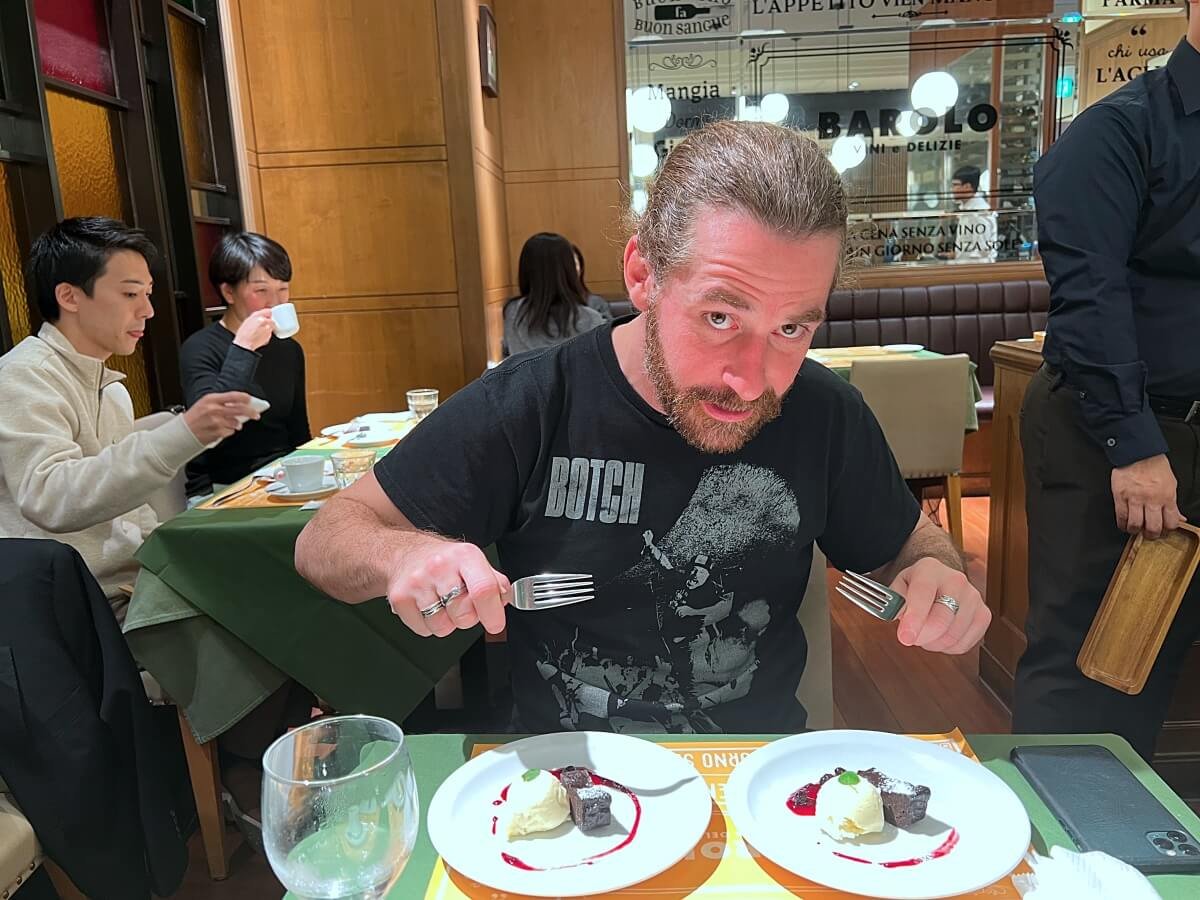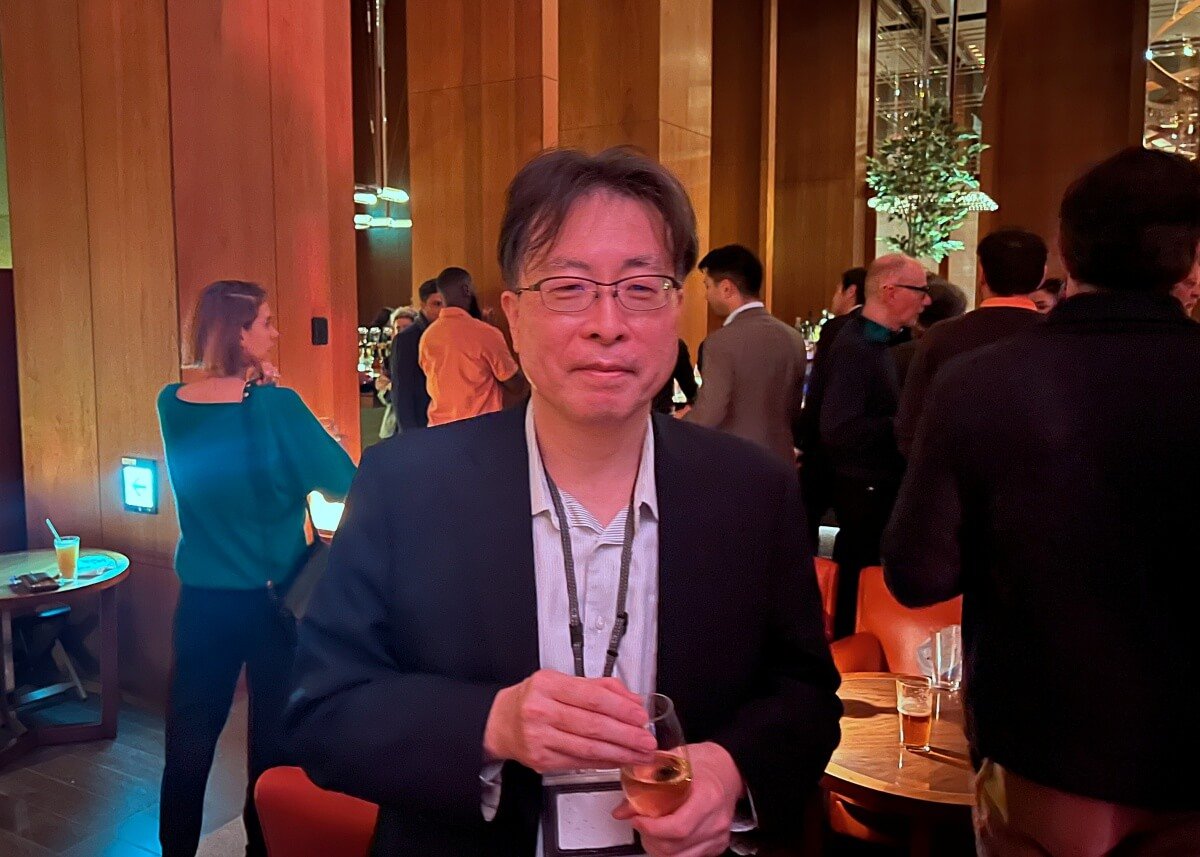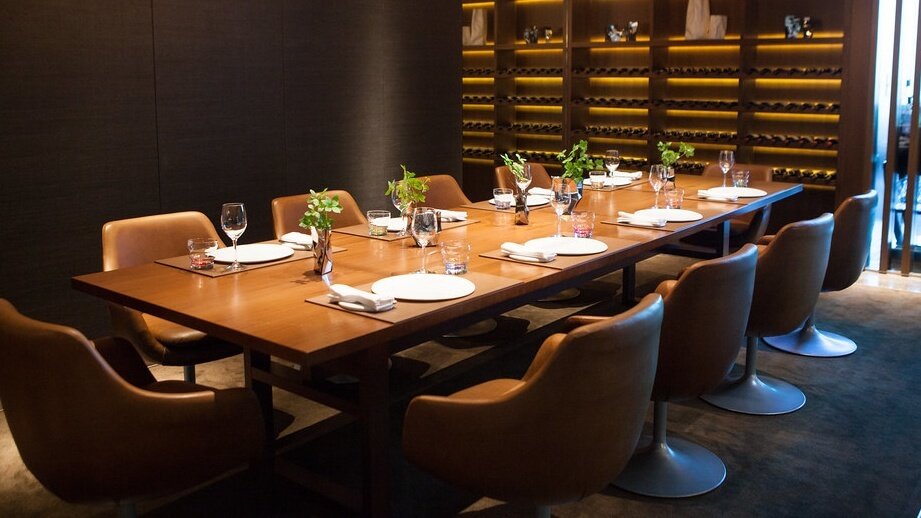The Delphi Roar: January 26, 2025
Dear Members and Advisers,
I am not going to lie, it is always a confusing feeling when you sit down at your desk after a holiday, and you try to bring some of the freshness and stimulus of the holiday to your work.
The challenge, I think, is that you have been doing your work for so long that you have developed a stiff routine which is hard to break sufficiently to allow new ways of thinking and doing things.
It's frustrating because the whole point of a holiday is to come back with new energy and new creativity, right?
I suspect it starts with a new way of doing holidays. This year, for example, I did a family holiday in Hong Kong and then a solo holiday in London, Dublin, Paris, and of course Wales, where my mother lives.
This was a difficult decision to make, because obviously it was not particularly popular with the family, not to mention the added expense. But that change was sufficiently inspirational that it has made it easier to maintain the resolution of doing something different in 2025.
Thoughts for the New Year
CEO, Not COO
One of the insights that I gained during my holiday was that I spend most of my time acting like a COO rather than a CEO. In other words, I spend a lot of time stabilising the business and refining my routine so that everything goes smoothly, with as few shocks as possible. I spend a lot of time and effort trying to improve my admin and trying to make sure that all the well-established Delphi elements work smoothly together, such as the newsletter, the CEO Summits, the members’ lunches and so on. And I'm always trying to improve my scheduling and invoicing, definitely weak points of mine!
So one of the resolutions I gained from my holiday was to act more like a CEO, which I define as exposing myself to more stimulus via people and travel, having a long-term vision of where Delphi should be, and also, taking calculated risks.
Calculated Risk
The reason I mention taking risks is that I had a conversation with member Gaspard Dessy, founder of Portcities, and recently my favourite business guru! I mentioned to him that I was surprised at how openly he was criticising the maker of the software that he re-sells in Japan, ODOO. He said something which stuck in my mind, namely, that he is trying to persuade his team, which is very risk-averse and routine-oriented, to think about the business in a different way. To achieve that, he needs to be the pioneer, and set an example.
He also said that if you don't take risks, it's very difficult for the business to grow more strongly, because you are always relying on what works, rather than thinking of new ways to do things better.
As a business, Delphi does not grow strongly. We have gone from zero to around 40 members since 2013. This fact has led me to wonder if I am too cautious, prioritizing having strong cash reserves over growth.
Perhaps this is because, as a small business owner, having cash in the bank makes me feel safe. Like every other Delphi member, I have experienced sharp business fluctuations in recent years, such as a Delphi boom during Covid, then a “bust”, when Covid ended, and several members were immediately reassigned away from Japan, to HQ or other markets.
So it’s a mental struggle for me to be bold. But I have recently concluded that if your money is piling up in the bank account, i.e. you are not re-investing it but are keeping it as a hedge or protection against the future, then you could probably be growing faster because you could be investing in new software, new staff, et cetera.
Hopefully, your hedge against future crises will not be the cash itself but a bigger, better-resourced and more powerful business!
Hedge the Future
There was an interesting comment in the Financial Times along these lines, attached to an article describing how much faster the US is growing than the EU or Japan.
This commenter mentioned how American businesses don’t hedge against the future by piling up cash in their bank accounts, like so many Japanese and many family-owned European companies do.
On the contrary, US companies are always using their money like an energy source, to make their companies grow stronger, run faster, and try new things. In and of itself, money is not something they value. It’s only a means to an end. And indeed, from a business perspective, I often find Americans more ready to experiment with Delphi membership, compared to Europeans and especially, the Japanese. (On the other hand, Europeans and the Japanese tend to be far more engaged with the Delphi community, once they have made the difficult decision to join).
In short, one of my goals this year is to replace “focus on savings” with a more positive strategy of investing, perhaps to cover losses in case ventures don’t work out. And this will mean taking on a little more risk and offering members new services and activities.
Seen in the Network














Upcoming Events
Recruitment Roundtable
Join us for a CEO roundtable on Japan’s recruitment challenges, featuring insights from Markus Winter and Jeremy Sampson on talent strategies and market trends.
Heard in the Network
“The Japanese make excellent members of the French Foreign Legion. They are seen as fully committed and detail-oriented”
“The Chinese are seen as very poor members of the FFL. They are seen as opportunist and selfish. This follows a famous incident when a group of them refused to go into action. They were lucky not to be shot as deserters, and were kicked out instead”
“The FFL is not an elite unit, at least in my understanding of the word “elit”. It’s full of cruel idiots. Power cascades down. Officers kill their men out of love of power and also, just dumb stupidity”
“Japan’s biggest difficulty has been engaging with the rest of the world. They honestly did very well on their own, benefiting greatly from some gentle penetration by Chinese and Indian culture. Fascism, free trade, globalization - they did all these as well as they could, but it never ended well. Or perhaps the lesson is that they should be more Asian and less Western?”
“Japan is an extremely difficult market to be successful. For success, long breath is necessary and it takes decades to build up strong relationships and trust. Our company was established 40 years ago and we are blessed to grow in Japan over the last 20 years BUT the first 20 years were very difficult for us and our house banks repeatedly pushed us to close down our operation, as we lost money. Today, those relationships with Japanese companies and networks help not only to win business in Japan but also in its overseas locations of our Japanese customers. It all paid off in the end, but only because management was exceptionally patient”
“Most country managers in Japan have a sales background. This makes sense, as revenue growth is the big challenge here. However, I do wonder if country managers with a stronger marketing (so not sales) would do better. Sales is very linear and almost crude. I think marketing people learn to be more nuanced about culture and other aspects of doing business in Japan.”
“I am a country manager in my late 50s, and I am beginning to wonder about how long my health can keep up. I am basically fine, because I look after myself. But some things you can’t control, such as increasingly poor eyesight and hearing or visible signs of ageing. I have considered surgical cosmetic treatment, and have started to use male cosmetics. I now meet potential customers and partners who are the same age as my children. To a certain extent, I feel awkward, and it’s hard to bond with them.”
“Donald Trump is not “good for business” he is specifically “good for American business”. Japan and Europe will have to tread carefully”
“One of the Japanese mothers at my son’s local school has a wikipedia entry, I was amused to see. She is mentioned for being the top grossing hostess (ie she worked in a hostess bar) in Japan. She has put on about 20kig since those days, but her social media pics are 100% photo-shopped. Her husband is 12 years younger than her, and she has two other kids. She has been all over the world as a model. I find her very good company!”
“Anglophones’ biggest mistake in Japan is not understanding the power of the state here, which was modeled after the Prussian model in practical terms, and after Kant’s theory of the god-like state, replacing the divine right of kings, in philosophical terms”
“I am looking for a big, pro-business boost from Donald Trump!”
“The COO is in charge of the present and the CEO is in charge of the future”
“I am in between jobs, but I don’t want to be a country manager again. It’s quite well paid, but I found be squeezed between local staff and local laws, and my HQ staff, very stressful and exhausting”
“After I became a CEO, I became surprisingly lonely. I felt that I always had to be suspicious of what people were telling me, in case they were only telling me stuff to keep me happy. I also felt people were frightened of the power I had to fire them. I don’t enjoy scaring people, so I did not like that, either. The only people I might have been able to speak to were other country managers within my group globally, but it was difficult to get to know each other. I also felt I was the only person ever blamed when things went wrong, but when things went right, HQ always called it a “group effort!”
“After I decided to leave my company, I was very stressed about my staff finding out, because I feared it would be a hit to morale. I became quite paranoid about keeping it secret!”
“However hard I work and exercise and self-improve, I have learnt that it’s only when my relationship to my family is solid that I can be happy.”
“The truly rich these days are asset-owners, not professionals like us, even highly paid ones. It’s no longer brains and drive that gets rewarded, it’s property. So we are going back to a concept of wealth and inheritance which modern capitalism was meant to defeat.”

